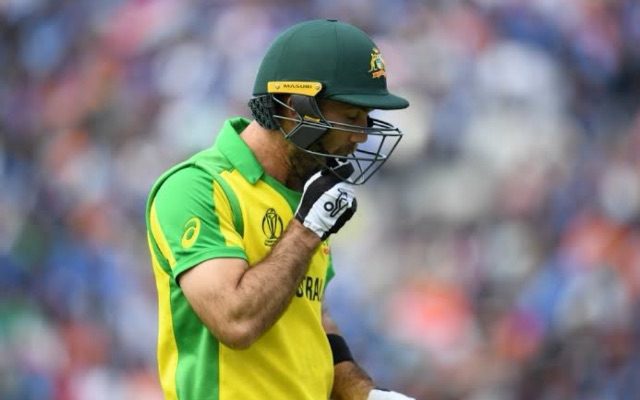
Cricket, often referred to as a gentleman’s game, is much more than just a sport. For players, it is a blend of physical endurance, mental acuity, and emotional resilience. However, while physical fitness and technical skills receive immense attention, mental health—an equally important aspect—has historically been overlooked. Recent revelations from prominent cricketers have helped break the stigma surrounding mental health in cricket, but the journey towards complete acceptance remains ongoing.
The Pressures of Modern-Day Cricket
Cricket, especially at the international level, demands relentless focus and consistency. Players spend months away from their families, constantly travel across time zones, and deal with the pressure of delivering results in front of millions of fans. The introduction of multiple formats—Test matches, One-Day Internationals, T20s, and franchise leagues—has only added to the workload.
Cricketers are expected to adapt their game to different formats almost overnight. Add to that the scrutiny of social media, which amplifies every misstep and creates an environment where criticism can quickly escalate into online abuse. These pressures often push players to their mental limits, but admitting to struggles with mental health has traditionally been seen as a sign of weakness in a highly competitive environment.
Stories That Sparked a Conversation
In recent years, several cricketers have courageously opened up about their struggles with mental health, helping to dismantle the stigma attached to the issue.
Glenn Maxwell
Australian all-rounder Glenn Maxwell took a break from cricket in 2019 to address his mental health. His openness about experiencing anxiety and stress marked a pivotal moment in the sport. Maxwell’s decision to step away from the game was met with widespread support, showing that mental health conversations in cricket were gaining traction.
Ben Stokes
England’s Test captain Ben Stokes took an indefinite break in 2021 to prioritize his mental well-being. Stokes spoke candidly about how he struggled to cope with the relentless demands of cricket and personal losses. His decision to take time off resonated with many, highlighting the importance of prioritizing mental health over professional commitments.
Virat Kohli
Former Indian skipper Virat Kohli has also been vocal about the mental toll of cricket. Kohli admitted to feeling depressed during a tough tour in England, where he struggled with poor form. His honesty encouraged fans and young players to view mental health as a critical aspect of an athlete’s career.
Breaking the Stigma
While these stories have created awareness, cricket still has a long way to go in normalizing discussions around mental health. Historically, athletes have been expected to demonstrate unshakeable mental strength, with little room for vulnerability. This perception has discouraged many cricketers from seeking help.
The stigma surrounding mental health in cricket often stems from fear—fear of being labeled “weak,” losing selection opportunities, or being judged by peers and fans. To combat this, governing bodies, franchises, and teams must take active steps to create a supportive environment.
Initiatives Promoting Mental Well-Being
Professional Support
Many cricket boards, including Cricket Australia and the England and Wales Cricket Board (ECB), have introduced mental health support programs. These initiatives include access to sports psychologists, regular counselling sessions, and mental health workshops to help players manage stress and build resilience.
Bio-Bubble Fatigue
The COVID-19 pandemic added a new layer of mental health challenges for players, with strict bio-secure environments leading to isolation and fatigue. Recognizing this, cricket boards have started prioritizing player well-being by providing breaks between series and minimizing bio-bubble durations.
Mental Health Advocates
Former cricketers, including Sir Ian Botham and Rahul Dravid, have spoken out in favor of mental health awareness. Their advocacy sends a powerful message to current players that mental health is as critical as physical fitness.
The Role of Fans and Media
Fans and the media play a significant role in shaping the conversation around mental health in cricket. While passion and criticism are integral to sports culture, empathy and understanding are equally important. Social media users must recognize the impact their words can have on athletes. Constructive criticism is valid, but crossing the line into personal attacks can severely impact a player’s mental health.
The media, too, has a responsibility to report with sensitivity. Sensationalism and relentless scrutiny can amplify a player’s struggles. Journalists and commentators should focus on creating a balanced narrative that celebrates achievements while acknowledging challenges.
The Path Ahead
To make lasting progress, the cricketing world must adopt a proactive approach to mental health.
- Early Education: Players at grassroots levels should be educated about mental health, ensuring they grow up in an environment where seeking help is normalized.
- Open Conversations: Team leaders and senior players must foster a culture of openness, where teammates feel comfortable discussing their struggles.
- Continuous Research: Sports psychologists and researchers must work together to understand the unique mental health challenges faced by cricketers and develop tailored solutions.
Cricket, like life, is as much a mental game as it is physical. Breaking the stigma surrounding mental health in cricket is not just an ethical imperative—it is essential for the long-term success and well-being of players. With increasing awareness, supportive initiatives, and empathetic fans, the sport can pave the way for a healthier and more inclusive future.
By prioritizing mental health, cricket can truly honour its spirit—a game of camaraderie, resilience, and respect. As the journey continues, every conversation, every initiative, and every story shared brings us one step closer to a world where mental health is embraced with the same vigour as a well-played cover drive.
Get the latest cricket news here, like us on Facebook, and follow us on Twitter and Instagram for more such updates.






